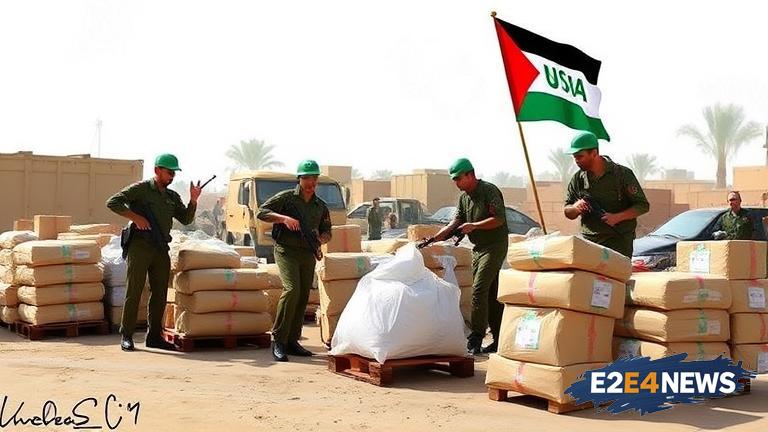A recent investigation has revealed that Israel lacks concrete evidence to substantiate claims that Hamas has been looting United Nations aid in Gaza. This discovery has significant implications, as it challenges the narrative that has been presented by Israeli authorities. The reports, which have been made public, show that there is no credible proof to support the allegations of looting. This has led to widespread criticism and skepticism regarding the claims made by Israel. The United Nations has been providing aid to the Gaza Strip, which has been affected by conflict and poverty. The aid is intended to support the basic needs of the population, including food, shelter, and healthcare. However, Israel has consistently claimed that Hamas has been diverting this aid for its own purposes. The lack of evidence to support these claims has raised questions about the motivations behind them. It is possible that the allegations were made to justify restrictions on the flow of aid into Gaza. The restrictions have had a devastating impact on the population, exacerbating poverty and hardship. The investigation has also highlighted the need for greater transparency and accountability in the distribution of aid. The United Nations has a responsibility to ensure that aid reaches those who need it most, and that it is not being diverted for other purposes. The reports have sparked a heated debate, with some arguing that Israel’s claims were exaggerated or fabricated. Others have pointed out that the lack of evidence does not necessarily mean that looting did not occur. The situation in Gaza is complex, and it is difficult to determine the facts. However, the reports have made it clear that Israel’s claims were not supported by credible evidence. The controversy has also highlighted the need for a more nuanced understanding of the situation in Gaza. The conflict between Israel and Hamas is longstanding, and it has had a profound impact on the population. The aid provided by the United Nations is essential, but it is only a temporary solution. A lasting resolution to the conflict is needed to address the root causes of poverty and hardship. The reports have also raised questions about the role of the international community in addressing the crisis. The United Nations has a critical role to play in providing aid and supporting a peaceful resolution. However, the organization faces significant challenges, including funding constraints and political divisions. The controversy surrounding Israel’s claims has also highlighted the need for greater cooperation and coordination between different actors. The situation in Gaza is a humanitarian crisis, and it requires a collective response. The reports have made it clear that there is no easy solution, but they have also emphasized the need for a more informed and nuanced understanding of the situation. By examining the evidence and challenging assumptions, it is possible to develop a more effective response to the crisis. The investigation has also demonstrated the importance of transparency and accountability in addressing humanitarian crises. The lack of evidence to support Israel’s claims has significant implications, and it highlights the need for a more critical approach to information and evidence. The situation in Gaza is complex, and it requires a thoughtful and informed response. The reports have made a significant contribution to the debate, and they have highlighted the need for a more nuanced understanding of the situation.
